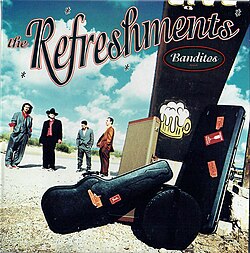 Eric Clapton’s “Tears in Heaven” stands as one of the most poignant and enduring ballads in modern rock history, a song that transcends its immediate context to become a universal meditation on loss, grief, and the fragile beauty of human connection. Released in 1992 as part of the soundtrack for the film Rush, the song also appeared on Clapton’s Unplugged album, cementing its status as both a personal statement and a public masterpiece. Nearly three decades later, “Tears in Heaven” remains a defining moment in Clapton’s career, reflecting his ability to translate profound personal pain into music that resonates with millions of listeners around the world.
Eric Clapton’s “Tears in Heaven” stands as one of the most poignant and enduring ballads in modern rock history, a song that transcends its immediate context to become a universal meditation on loss, grief, and the fragile beauty of human connection. Released in 1992 as part of the soundtrack for the film Rush, the song also appeared on Clapton’s Unplugged album, cementing its status as both a personal statement and a public masterpiece. Nearly three decades later, “Tears in Heaven” remains a defining moment in Clapton’s career, reflecting his ability to translate profound personal pain into music that resonates with millions of listeners around the world.
At its core, “Tears in Heaven” is a song about absence and longing, born from the tragic loss of Clapton’s four-year-old son, Conor, who fell to his death from a New York apartment building in 1991. The immediacy of the grief, combined with Clapton’s delicate songwriting, creates a piece that is intimate, heartbreaking, and ultimately cathartic. Its gentle melody, understated instrumentation, and deeply personal lyrics allow the listener to enter Clapton’s emotional world, making the song not only a tribute but a shared experience of mourning and remembrance.
Origins and Personal Context
The genesis of “Tears in Heaven” is inseparable from the tragedy that defined its creation. Clapton’s four-year-old son, Conor, died in a fall from the 53rd-floor window of a Manhattan apartment in March 1991, an event that plunged the guitarist into profound grief and introspection. Rather than retreat from music, Clapton turned to songwriting as a means of processing and articulating his sorrow, channeling his emotions into a composition that is both painfully personal and universally relatable.
In interviews, Clapton has described the song as a “private, intimate, and emotional” piece, reflecting not only the immediate grief of losing a child but also broader questions about mortality, legacy, and the nature of human connection. The lyrics confront these questions with tenderness and humility, offering a perspective that is vulnerable yet accessible to anyone who has experienced loss.
The song also emerged during a period of personal and artistic reflection for Clapton. Following decades of musical exploration—from the blues-infused virtuosity of his early career to the experimentation of Derek and the Dominos—“Tears in Heaven” represents a turning point in his public persona: the shift from rock god and guitar virtuoso to a deeply human storyteller capable of translating personal anguish into art.
Musical Composition and Structure
Musically, “Tears in Heaven” is deceptively simple, yet this simplicity is integral to its emotional power. The song is written in the key of A major, with a gentle, fingerpicked acoustic guitar pattern that underpins the entire piece. The fingerpicking style, delicate and understated, mirrors the fragility of the song’s subject matter, creating an intimate sonic environment in which Clapton’s vocals can convey maximum emotional impact.
The structure of the song follows a classic verse-chorus form, but Clapton incorporates subtle variations in melody and harmony to maintain tension and emotional depth. The verses are contemplative and understated, building toward the chorus, which is both lyrical and melodic resolution. This careful balance of repetition and variation allows the song to remain accessible while also capturing the complexity of grief, which is never linear or predictable.
The harmonic progression is rooted in major and minor tonalities that evoke both melancholy and hope, creating a sense of bittersweet reflection. The use of suspensions, passing chords, and gentle modulations adds depth and color to the composition, allowing Clapton to explore emotional nuance without overwhelming the listener with complexity.
Lyrics and Emotional Weight
The lyrics of “Tears in Heaven” are straightforward yet profoundly moving, capturing the delicate intersection of love, loss, and hope. The opening lines, “Would it be the same if I saw you in heaven?” immediately establish the song’s central theme: the questioning and yearning inherent in grieving a loved one. This simple, unadorned question resonates universally, inviting listeners to contemplate their own experiences with loss.
Throughout the song, Clapton balances sorrow with tenderness. Lines such as “I must be strong, and carry on, ’cause I know I don’t belong here in heaven” convey a sense of ongoing struggle, acknowledging the difficulty of moving forward while honoring the memory of a lost loved one. The lyrics avoid melodrama or sentimentality, instead opting for sincerity and emotional clarity, which is a key factor in the song’s enduring resonance.
The chorus acts as both release and reflection, repeating the central question and reinforcing the universality of grief. The combination of personal specificity—Clapton’s direct reference to his son—with universal themes of love, absence, and the search for solace allows the song to function as both memoir and meditation, creating a bridge between artist and audience.
Instrumentation and Arrangement
The instrumentation of “Tears in Heaven” is minimal but meticulously crafted, allowing space for the emotional content of the lyrics to shine. Clapton’s acoustic guitar provides the primary harmonic and rhythmic support, its gentle fingerpicking creating a sense of intimacy and vulnerability. The guitar is complemented by understated bass lines and light percussion in some versions, particularly the Unplugged recording, which adds subtle depth without compromising the song’s fragile atmosphere.
Clapton’s vocal delivery is central to the track’s impact. His voice is tender, restrained, and expressive, conveying grief and longing without veering into sentimentality. The slight tremor in his tone, coupled with his careful phrasing, adds layers of emotional nuance that resonate with listeners on a visceral level.
On the Unplugged version, the arrangement expands slightly to include subtle instrumentation—additional acoustic guitars, bass, and restrained percussion—creating a live warmth that enhances the song’s immediacy. This expanded arrangement highlights Clapton’s ability to maintain emotional intimacy even within a broader sonic palette, demonstrating his mastery of dynamic contrast and textural subtlety.
Recording and Production
The recording of “Tears in Heaven” reflects a careful balance of simplicity and emotional depth. Producer Simon Climie and Clapton focused on capturing a natural, unadorned sound that emphasized the emotional content of the performance. The acoustic guitar is recorded with clarity and presence, allowing each note to resonate, while Clapton’s vocals are front and center, unembellished and direct.
The production eschews excessive effects, instead relying on microphone placement, room acoustics, and careful mixing to create a sense of intimacy and immediacy. Reverb is used sparingly to add warmth and depth, but never to distance the listener from the performance. This approach ensures that the song’s emotional resonance is not lost to technical embellishment, allowing the listener to experience the raw sincerity of Clapton’s performance.
Cultural Impact and Reception
Upon its release, “Tears in Heaven” was met with widespread critical acclaim and commercial success. The song earned Clapton several Grammy Awards, including Record of the Year, and became one of his best-selling singles. Its universal themes, combined with Clapton’s artistry, ensured that it resonated with a broad audience, transcending generational and cultural boundaries.
The song also occupies a unique place in Clapton’s career. While he is celebrated for his blues guitar virtuosity and rock anthems, “Tears in Heaven” revealed a different side of the artist: one capable of profound emotional vulnerability and lyrical intimacy. The track’s success expanded Clapton’s reach and influence, introducing his music to listeners who might not have been familiar with his blues or rock repertoire.
Beyond its commercial achievements, “Tears in Heaven” has had a lasting cultural impact, often cited in discussions of music and grief. The song is frequently used in memorials, tributes, and educational contexts, serving as a touchstone for discussions about the role of music in processing loss and expressing human emotion. Its ability to articulate grief without overwhelming the listener has made it a template for musicians addressing personal tragedy in their work.
Musical Analysis
From a technical perspective, “Tears in Heaven” is notable for its elegant harmonic structure and rhythmic restraint. The fingerpicked acoustic guitar pattern creates a gentle, flowing texture, while subtle chord variations and suspensions provide emotional shading. The song’s melodic line is diatonically straightforward but enriched by expressive intervals, creating a sense of longing and introspection.
The interplay between verse and chorus demonstrates careful dynamic shaping. Verses are understated, emphasizing reflection and narrative, while choruses offer a melodic resolution that is emotionally cathartic. The harmonic choices—particularly the use of major sevenths and suspended chords—imbue the song with a sense of wistful beauty, balancing sadness with gentle hope.
Clapton’s phrasing and vocal inflection are integral to the song’s musical impact. Each line is delivered with nuanced timing, allowing space for the listener to absorb the emotional weight. This attention to detail in both performance and arrangement ensures that the song’s simplicity does not undermine its complexity, creating a work that is emotionally and musically sophisticated.
Legacy and Enduring Influence
Tears in Heaven has become one of Eric Clapton’s signature works, enduring as a seminal example of music’s power to articulate grief and facilitate emotional connection. The song has influenced countless artists, particularly in the realms of acoustic balladry, singer-songwriter introspection, and emotionally driven rock music. Its success demonstrated that commercial appeal and emotional authenticity could coexist, paving the way for other musicians to explore deeply personal themes in mainstream contexts.
The song’s legacy is also evident in its continued cultural relevance. It has been covered by numerous artists, used in educational settings, and referenced in popular media, ensuring that its message of loss, love, and remembrance reaches successive generations. Its influence extends beyond Clapton’s own discography, serving as a model for translating personal tragedy into art that resonates universally.
Emotional Resonance
What sets “Tears in Heaven” apart is its ability to convey the intricacies of grief with emotional honesty and musical elegance. The song avoids melodrama, instead opting for a sincere, restrained, and reflective tone that allows listeners to engage with their own experiences of loss. The combination of delicate instrumentation, subtle harmonic complexity, and tender vocal delivery creates a listening experience that is immersive, contemplative, and ultimately cathartic.
The song’s emotional resonance is amplified by its context. Knowing the tragic circumstances surrounding its creation adds layers of poignancy, but even without that context, the song’s melodic and lyrical beauty communicates grief and love in a way that is universally understood. This dual capacity—to be both deeply personal and widely accessible—is a key reason for its enduring power.
Conclusion: Music as Mourning and Memory
Eric Clapton’s “Tears in Heaven” is more than a song; it is an enduring exploration of grief, memory, and the human heart. Its delicate acoustic textures, expressive lyrics, and emotive vocals create a work that is both intimate and universally resonant. By transforming personal tragedy into a piece of musical art, Clapton demonstrates the power of music to heal, communicate, and connect.
The song’s legacy extends beyond its commercial success or critical acclaim. It serves as a reminder that music can articulate emotions that words alone cannot, offering solace and understanding to listeners navigating their own experiences of loss. Tears in Heaven occupies a rare space in popular music: it is a song that is both profoundly personal and deeply universal, a testament to Eric Clapton’s artistry and to the enduring capacity of music to reflect the human soul.
Through its melodic simplicity, harmonic richness, and emotional clarity, “Tears in Heaven” remains a timeless work of art, a song that continues to inspire, console, and resonate across generations, reminding us of the fragility of life and the enduring power of love and memory.


